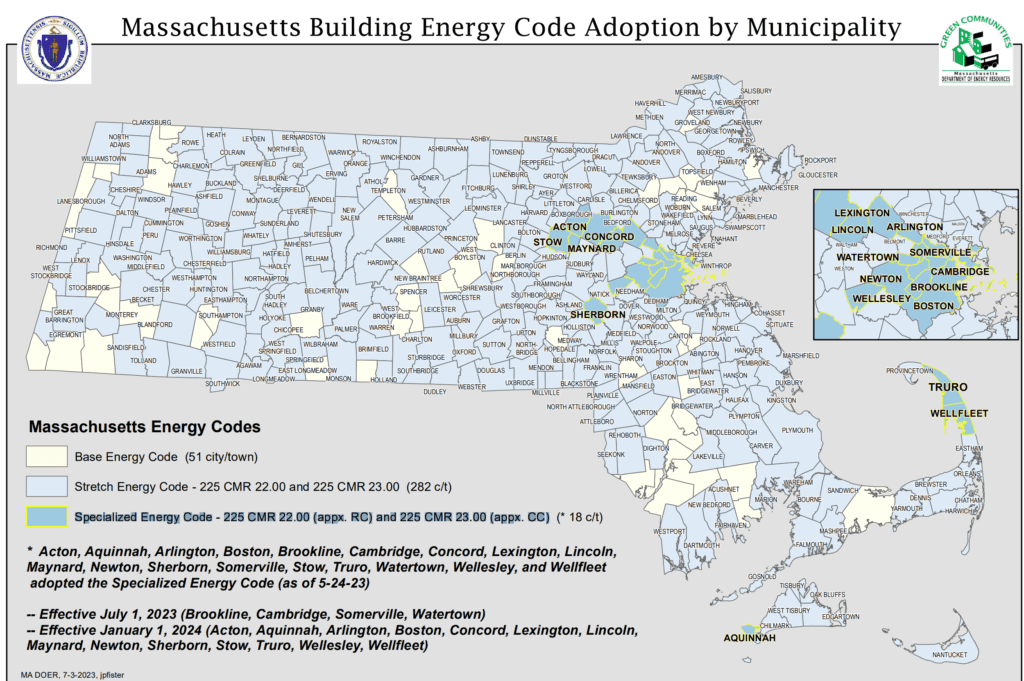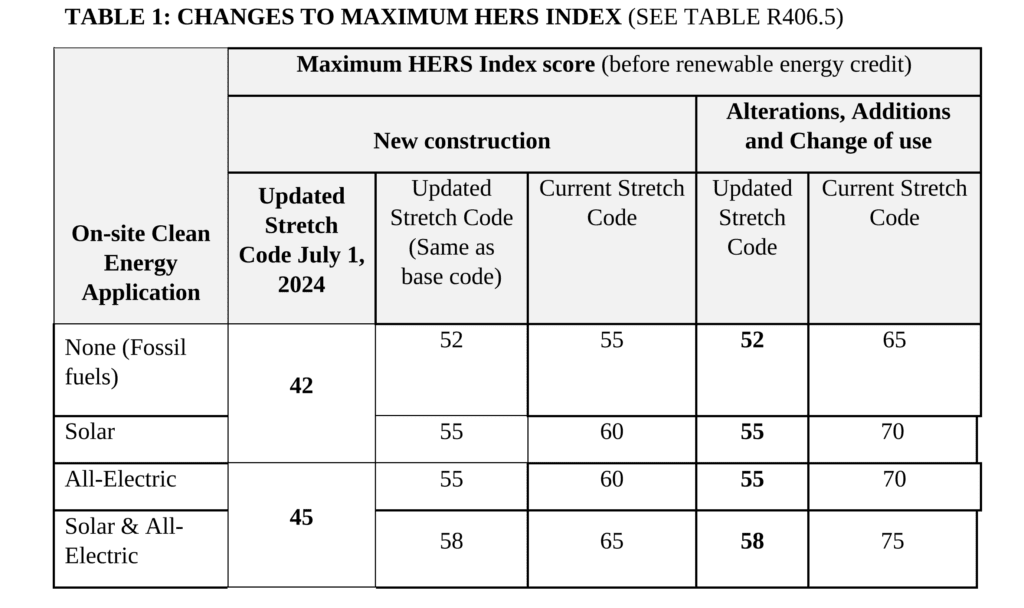
What is a HERS Score and Why is it Important in Updated Building Codes?
The HERS index score, or Home Energy Rating System score, is a measure of a home’s energy efficiency. It is calculated on a scale of 0 to 100, with 100 being the least energy efficient and 0 being the most energy efficient. A home with a HERS index score of 100 is equal to the average energy efficiency of a home built to the 2006 energy code.

HERS scores are important in the updated Massachusetts building codes because they are a way to measure the energy efficiency of a new home. The updated codes require that new homes have a HERS index score of 55 or lower. This means that new homes must be built to be more energy efficient than homes built to the previous code.
Here is a table summarizing the required HERS scores:

The HERS index score is calculated by a certified Home Energy Rater (HERs Rater) who conducts an energy audit of the home. The audit includes measuring the home’s heating and cooling loads, insulation levels, air infiltration, and other factors that affect its energy efficiency. The HERs Rater then uses this information to calculate the home’s HERS index score.
A lower HERS index score indicates a more energy-efficient home. Homes with lower HERS index scores can save money on energy bills and have a smaller environmental impact.
Here are some of the factors that are considered when calculating the HERS index score:
- Heating and cooling loads: The heating and cooling loads are the amount of energy needed to heat and cool the home. Homes with lower heating and cooling loads will have lower HERS index scores.
- Insulation levels: The insulation levels in the home affect how much heat is lost in the winter and how much cool air is lost in the summer. Homes with higher insulation levels will have lower HERS index scores.
- Air infiltration: Air infiltration is the amount of air that leaks into and out of the home through cracks and gaps in the building envelope. Homes with lower air infiltration rates will have lower HERS index scores.
- HVAC system efficiency: The efficiency of the home’s heating and cooling system also affects its HERS index score. Homes with more efficient HVAC systems will have lower HERS index scores.
- Energy-efficient appliances: The energy efficiency of the home’s appliances also affects its HERS index score. Homes with more energy-efficient appliances will have lower HERS index scores.
A certified Home Energy Rater (HERS Rater) calculates the HERS index score in Massachusetts. HERS Raters are trained and certified by the Residential Energy Services Network (RESNET) to conduct energy audits and calculate HERS index scores.
HERS Raters can be found in all parts of Massachusetts. You can find a list of HERS Raters in your area by visiting the RESNET website.
Which building energy code is in force in your MA community? There are three energy codes in force in MA at present:
- Base energy code
- Stretch Energy Code – 225 CMR 22.00 and 225 CMR 23.00
- Specialized Energy Code – 225 CMR 22.00 (appx. RC) and 225 CMR 23.00 (appx. CC)
The Specialized Code encourages the use of all-electric heating, cooling, and hot water. Buildings that use fossil fuel systems must be pre-wired for future electric systems and have solar. Both codes require 20% of residential and business parking spaces to be wired for electric vehicle charging.
Here is a map of MA communities and the energy codes they have adopted (original here with table):

The Massachusetts Stretch Energy Code (225 CMR 22.0) is a set of building code amendments that go beyond the state’s minimum energy efficiency requirements. The code is designed to help Massachusetts reach its goal of reducing greenhouse gas emissions by 50% by 2030. Note the Stretch Energy Code also applies to substantial renovations or additions. Check with your local building inspector for details.
The main requirements of the Stretch Energy Code include:
- A HERS index score of 55 or lower for new homes.
- Increased insulation levels in the walls, attic, and foundation.
- Air sealing of all cracks and gaps in the building envelope.
- High-efficiency heating and cooling systems.
- Energy-efficient appliances.
- Water-efficient fixtures and appliances.
The Stretch Energy Code also includes provisions for renewable energy, such as solar panels and heat pumps.
The Stretch Energy Code is voluntary for most communities in Massachusetts. However, some communities have adopted the code as a requirement for all new construction.
